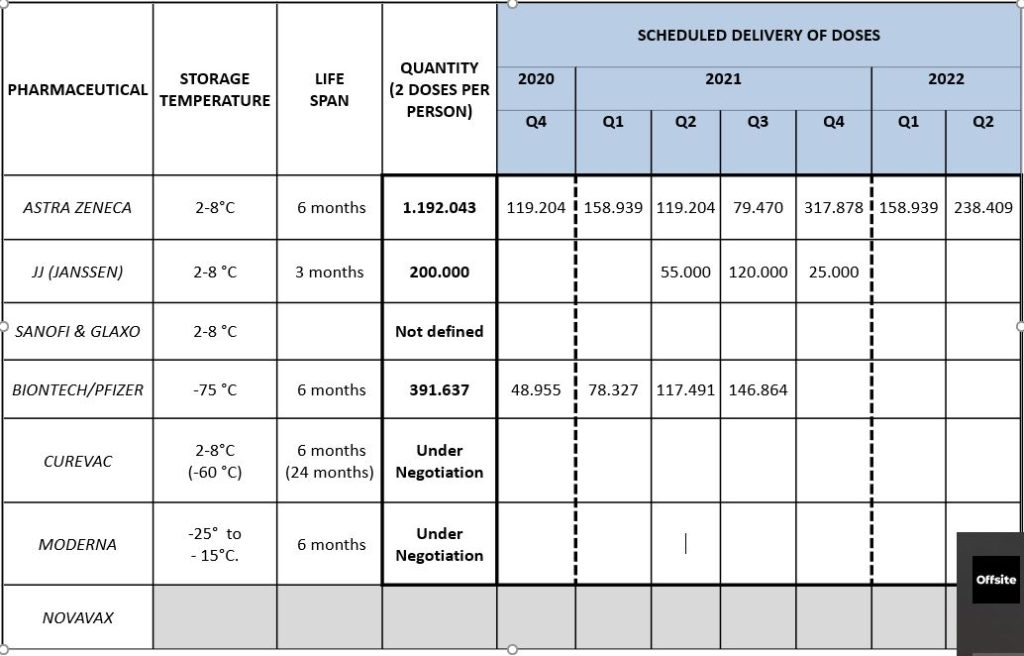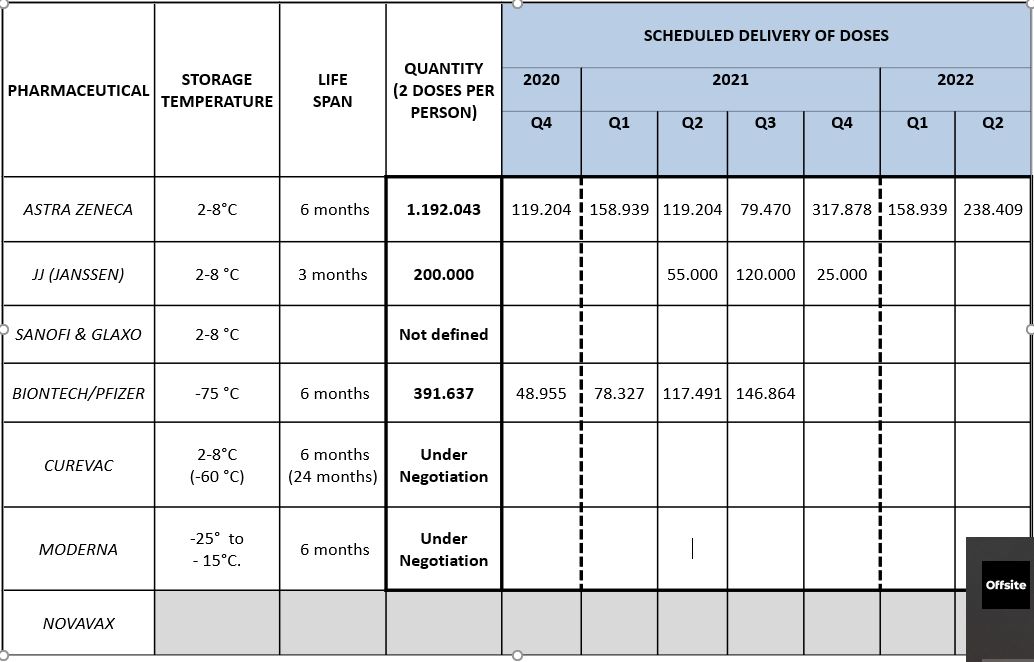Cyprus is finalising its vaccination program against COVID-19, as authorities expect to see the first batch of vaccines arriving just after Christmas, with the rollout to take place early January.
More scientists are drafted to help health authorities design their large-scale plan, address logistic problems, prioritise groups according to their vulnerability while also informing the public on vaccines available.
In comments to the Financial Mirror, Dr Zoe Dorothea Pana, member of the government COVID advisory team, said that while health services are working on preparing vaccinations, the public need persuading about the necessity of getting vaccinated.
“Most European Union countries are at the same stage when it comes to finalising their vaccination plan,” Pana said.
“We are talking about a very difficult task, health services have to address logistic problems which not only have to do with storing vaccines at very low temperatures but also making sure we have enough medical consumables such as syringes,” she added.
Dr Pana explained that the plan is to have vaccination programs across the EU, carried out at the same time, posing logistical challenges while to get people on board.
“Two companies have so far pledged to give the first doses of the vaccines around mid-December. These are ASTRA ZENECA, from which Cyprus is expecting a quantity of 119,204 in December, and BIONTECH / PFIZER with a quantity of 48,955 doses”.
Each vaccine needs taking in two separate doses.
Currently, only Pfizer’s vaccine has approval, which means, as Health Minister Constantinos Ioannou confirmed, 24,000 citizens are expected to be vaccinated in early January.
The vaccine will be given to frontline health workers first.
“Once more vaccines get approved and start arriving, we will move on to vulnerable groups starting from the elderly, moving on to people with chronic health issues such as heart problems, diabetes and kidney failure,” said Pana.
Essential workers such as police officers, people working in care homes, and other closed facilities will follow.
Children are not included in the priority groups, as more date need collecting on how they are affected by the vaccines made available.
“Our aim to vaccinate the entire population if everyone is on board.”
“That is why we aim to keep people informed about the latest developments surrounding vaccines, for people to understand that they should get vaccinated for their own safety and that of their fellow citizens.”
Dr Pana on Friday presented a timetable on the expected arrival of vaccines from companies with which the EU has agreed.
Vaccine misinformation
So far, Cyprus expects to receive some 1.78 mln doses with the majority of vaccines requiring that people take two doses, some three weeks apart.
Asked about concerns over vaccine altering human DNA, she said there was a lot of misinformation about vaccines and called on the public to crosscheck their facts from reliable sources.
In comments to the Financial Mirror, Dr Peter Karayiannis, a government advisor and virologist at the University of Nicosia Medical School, said Cyprus is in desperate need of a vaccine after the recent resurgence of the virus.
“As the Minister said, an initial 24,000 people vaccinated, not even close to the numbers we need to see vaccinated to reach herd immunity,” said Karayiannis.
He explained, that depending on the efficacy of vaccines to become available, between 60% and 70% of the island’s population will need vaccinating.
“Global demand will be massive. So, a lot will depend on how fast vaccines get licensed and how fast pharmaceuticals can distribute them.”
Karayiannis said that scientists are waiting for stage 3 results on Astra Zeneca’s vaccine, to determine its efficacy rate and how widely it can be used when it comes to specific groups.
Efficacy rates are not the only data that concern scientists, as they are waiting to see whether the vaccines will prevent people from contracting the virus entirely or just preventing them from getting seriously ill.
“Furthermore, we will have to wait to see for how long vaccinated people remain immune to the virus. If it is less than a year, then people could have to repeat vaccinations on an annual basis, much like the flu vaccine.”











